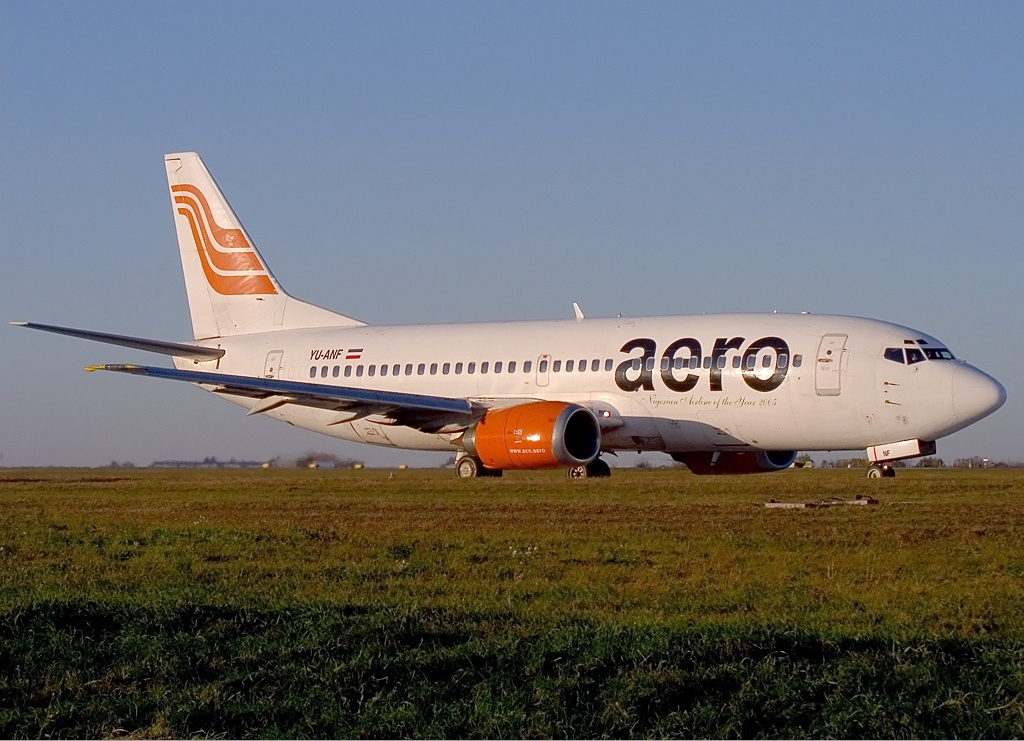- Aero Lays Off 60% of Workforce
Aero Contractors Nigeria Limited has issued letters of redundancy to about 60 per cent of its total workforce.
The airline said it had been grappling with huge and unrealistic personnel costs as well as other operational challenges worsened by lack of enough aircraft to keep all the workers meaningfully engaged.
Aero said in a statement issued on Thursday that the issuance of notification of redundancy was a business decision that would ensure its survival.
“The current situation where over 1,000 people are basically not engaged due to lack of serviceable aircraft is not sustainable for the airline. The huge monthly salaries associated with a bloated workforce will eventually kill the airline, which is not the intention of the current government,” the airline said in the statement.
It stated that it currently had aircraft-to-employee ratio of 1:500, adding that this was perhaps the worst in the history of the global airline industry.
“Government’s intervention in Aero was to save it from total collapse, therefore, all steps such as this (issuance of redundancy letters, are to ensure that its survival must be put into consideration to save the airline,” it added.
This decision, the statement explained, would immediately reduce the operational cost, enable the management bring in more aircraft through savings from overheads, pay for C-checks as well as enable Aero to have a more manageable and committed workforce in line with international best practices of 50 to 60 personnel to one aircraft unlike what obtained at the moment.
The airline, however, added that those in maintenance repair and overhaul, as well as other essential staff in critical departments would not be affected by the notification.
It stated that the Chief Executive Officer, Aero, Capt. Ado Sanusi, and his management team had also ensured that the affected workers would be able to access their full gratuities as well as a part of their pension.
“They also stand a chance of being recalled as soon as Aero increases the number of aircraft in its fleet in the near future,” the statement added.
It stated that before taking this decision, the management of Aero consistently explained the inevitability of redundancy declaration to both the workers and the unions, because there was no way the airline could carry on with its bloated personnel and huge overhead costs.
The redundancy letter read in parts, “Following the operational challenges of Aero, culminating in (the) loss of business opportunities that adversely affected company finances vis-à-vis operations, we are constrained to place you under redundancy pending a possible future review. This decision was communicated to the unions where their understanding was solicited in view of prevailing operational difficulties.
“Whilst Aero appreciates your contribution to the company and continues to regard you as worthy ambassadors, we solicit your understanding as we struggle to stabilise operations and rebuild the company.”
Aero also assured its customers that the exercise would in not affect its operations, but that it would rather enhance safety, reliability and efficiency.
While reacting to the development, the President, Air Transport Services Senior Staff Association of Nigeria, Ahmadu Ilitrus, said the notice of redundancy to Aero workers was unacceptable to the body, adding that a meeting to discuss the airline’s issues had been scheduled for Friday.
Ilitrus said the union had advised the workers not to accept any letter from the management.
“We are not against redundancy but what we are saying is that before you sack them, there must be money to pay them and I know Aero does not have the money to pay them. They went ahead to hold meetings with our branch members, but we have told them that the matter has gone beyond the branch,” he said.
He said the process of redundancy ought to have been declared in October 2016 but a meeting was held last month to review the progress made, adding that the management of Aero pleaded for time to work things out in order to commence the process.
Ilitrus said the management of the airline should not give room for industrial unrest as the entitlements of all the affected workers must be ready at the point of the collection of their letters.



 Naira4 weeks ago
Naira4 weeks ago


 Naira3 weeks ago
Naira3 weeks ago


 News4 weeks ago
News4 weeks ago
 Travel4 weeks ago
Travel4 weeks ago




 Naira4 weeks ago
Naira4 weeks ago


 Jobs3 weeks ago
Jobs3 weeks ago
 Naira3 weeks ago
Naira3 weeks ago


 Travel3 weeks ago
Travel3 weeks ago




















